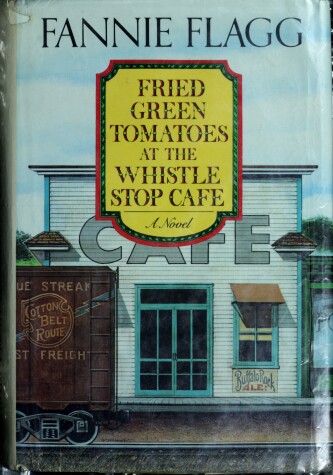
nannah
Book content warnings:
rape
racism
fatphobia
racial slurs
Evelyn visits her mother-in-law in a nursing home, basically feeling depressed and numb in middle age, and somehow becomes friends with another lady there, Mrs. Ninny Threadgoode. Soon, Evelyn eagerly anticipates her visits. Mrs. Threadgoode talks about her memories in Whistle Stop, Alabama, and Evelyn listens.
This is definitely one of those "atmospheric" books. You're here for the painting of Whistle Stop and its plethora of characters, not for any plot. Especially because the book doesn't stick to one coherent timeline (besides Evelyn and Mrs. Threadgoode's, that is). The retelling of the goings on in Whistle Stop can jump anywhere from back in the 30s to the 60s.
I'm not sure when the book started making me uncomfortable, but it crept up on me and gradually gained momentum, until by the end I just wanted to finish it to finish it.
I first rented this for the wlw rep and diverse characters, but I am really disappointed with how those characters are represented here. Ruth and Idgie, the lesbian/bi women, aren't well developed outside of their youth, and have a relationship borderline unhealthy (plus, it's not even "defined" whether or not they're actually in a relationship--goodread's official description for them is "friends" . . . incredible). I understand it's Ruth and "Aunt Idgie" to avoid the lesbophobia that was a lot more prevalent during that time, but nobody--not even from Idgie's family--found Idgie being a lesbian the slightest bit strange? When the book didn't shirk from the any of the racism of the 1930s-60s, I didn't like how it softened the homophobia. That may seem strange, especially coming from a wlw, but you can't "get rid" of one form of oppression magically and say you're being progressive when you're still depicting the lack of rights in another form. I don't know . . .
Moving on, Idgie is pretty damn manipulative. It's apparent she cheats on Ruth (telling Stump "don't tell your mother"--therefore she knows it's wrong, too), but her view on it is never challenged. Ruth and Idgie never even have a conversation about it; Ruth just seems a bit passive aggressive. Plus, she's stalked Ruth when Ruth was married to a man. It's not romantic . . . it's creepy.
There's also some things that made me uncomfortable in regards to race . . . now, I'm a white reviewer so take what I say with a grain of salt. There are two twins, Jasper and Artis. One is light-skinned (Jasper), and one is dark-skinned (Artis). So who is the "good" twin, and who is the "evil" twin? Yeah, just guess. Artis ends up in jail often, and he stabs Jasper one time and ends up "liking it" and etc., etc., etc. There was a chapter or two that talked about this difference in skin color among black people, but it kind of feels beside the point when she made Artis violent and Jasper do no wrong.
There's also a point where Evelyn (the main PoV character) wishes she were black--and has some pretty fetishist views of black people. She and Mrs. Threadgoode talk about how black people are just "so different", especially when it comes to feeling things. (However, she's also afraid of black men, a view which doesn't shift. Because eeeeeeveryone knows black men are scary, violent people. /sarcasm) There's also an inner monologue where Evelyn is angry and thinks how all these marginalized groups have already had their protests and protections granted (HA! as if), but when will that time come for women?! (basically affirming the White Feminist thought of even today that Woman = White Woman [only])
. . . This is the moment I knew without a doubt the book was written by a white woman. I verified it on the back of the book and shook my head.
At least I'll stop wondering about what this was about when I see it on all the lgbt/lesbian goodreads lists.

